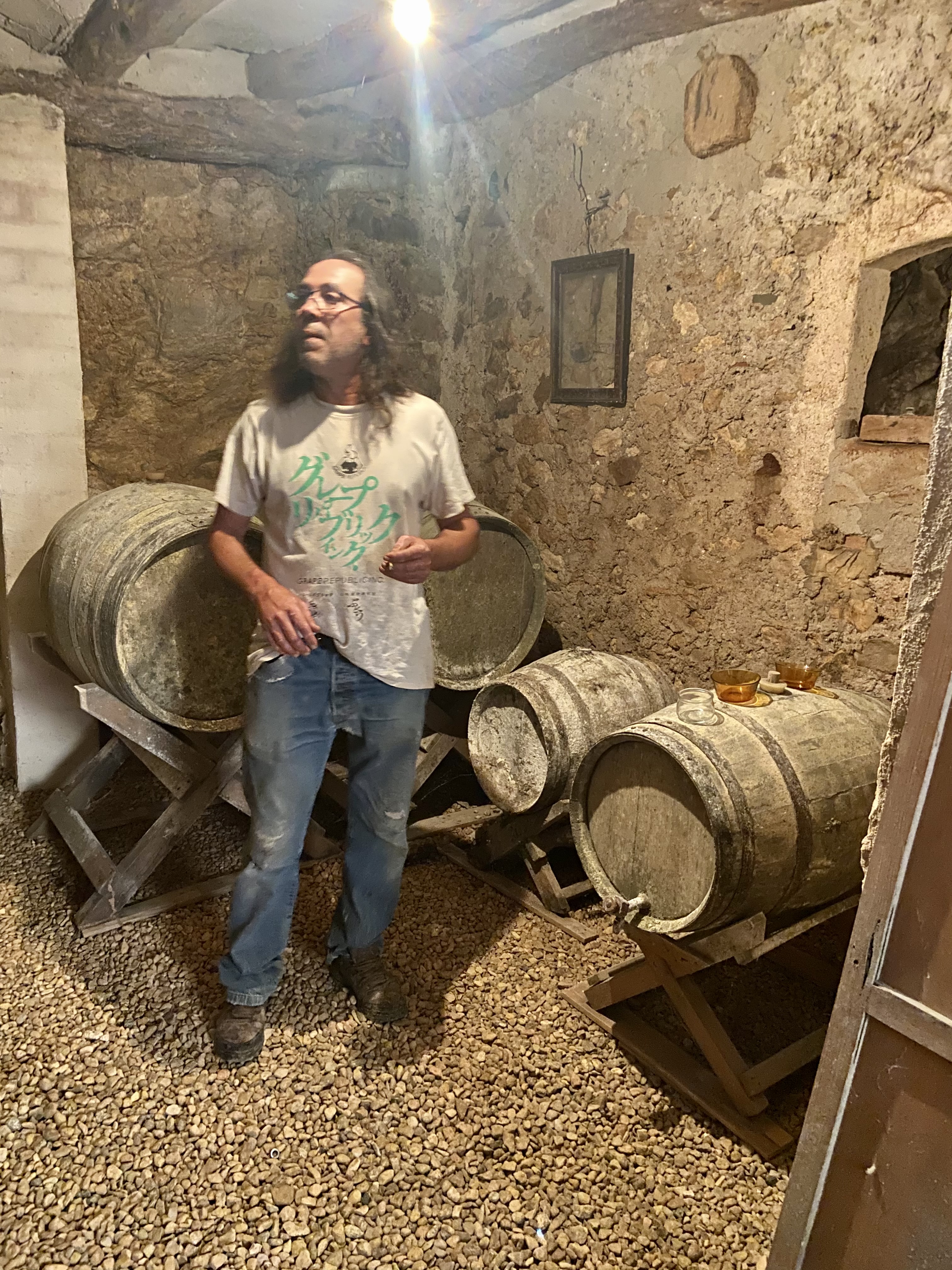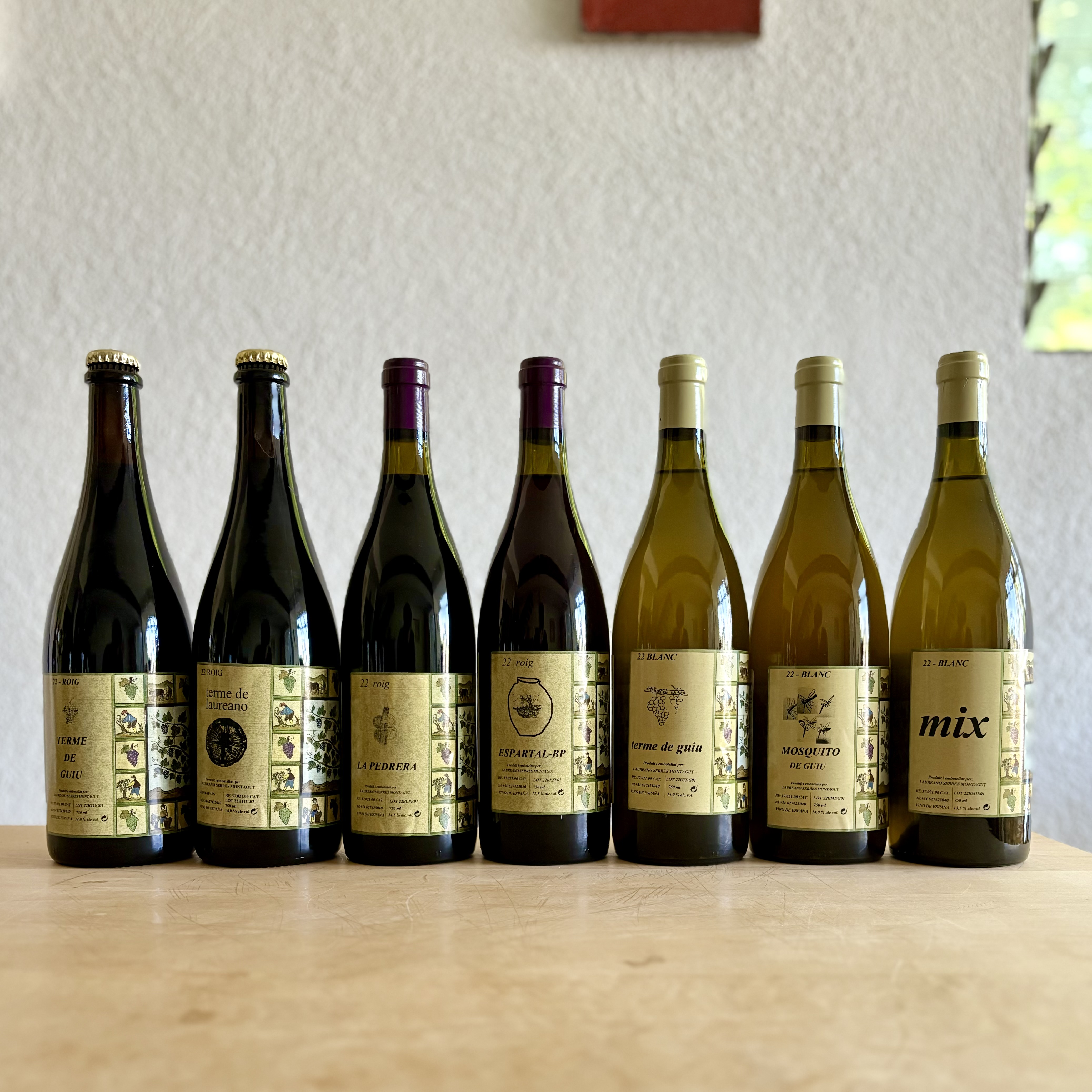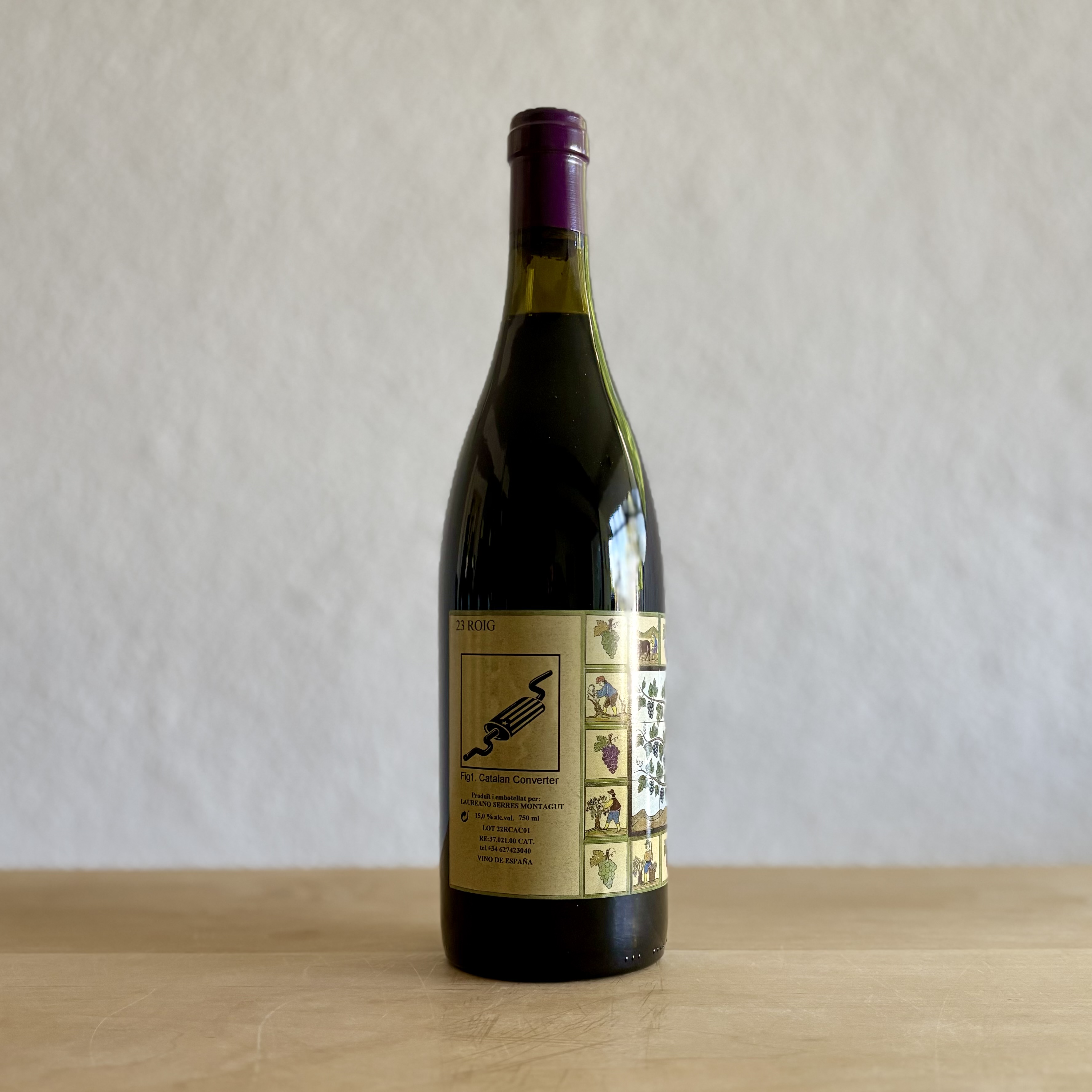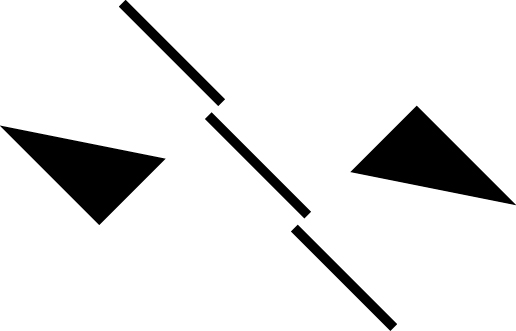Mendall
Laureano Serres (El Pinell de Brai, Spain)
 A framed photo of Laureano and Joan-Ramon Escoda in the bathroom of Rosforth and Rosforth, Copenhagen. If I remember correctly, we were drinking a white Mendall magnum on a late summer 2022 day outside while I peed.
A framed photo of Laureano and Joan-Ramon Escoda in the bathroom of Rosforth and Rosforth, Copenhagen. If I remember correctly, we were drinking a white Mendall magnum on a late summer 2022 day outside while I peed.Old photos of Laureano Serres show him as dark and handsome, a little nerdy, a wiser than his age figure with a deep spirit. I like to think of Laureano in the same light as a couple of literary and artistic heroes of mine, the late Margeurite Duras and Gary Indiana, both of whose youthful visages gave way to more ravaged later life appearances as their inner worlds exploded onto the page and into the minds of those smart enough to listen. Of course alcohol figured into both of their visual equations. In some ways Laureano makes wines like Duras and Indiana wrote. He's at least come into his own savage face as the years have turned and the wines have flowed. Dedication at it’s finest.
I find it useful to pay attention to what everyone hates, or seems to have some opinion on—informed or not—and for so many years now Laureano Serres' wines have curiously been the subject of vitriol from all sides. Perhaps it's his ironic self-mythologizing in which he's claimed to have invented every natural wine fault that now exists in both the old and new worlds. Or maybe it's the fact that no two Mendall vintages are ever the same—a pretty simple concept in vin nature that oddly seems to have even seasoned drinkers' mind's boggled sometimes. Whether you like his wines or not, and that’s kind of the point of all of this, there is an unusual truthfulness in Laureano's bottles that is simply not the norm these days. Serres isn't worried about what the market wants or needs, and this is clear in a wine such as Mix, in which Serres decided to experiment by raising the juice in new oak rather than the usual inox or amphora. Contrarianism aside, Mix is as beautiful and pure as a wine from the Terra Alta can be. While Laureano is still heavily involved in Mendall, the past couple of years have seen his daughter Alicia begin to take the reins, and the results feel like a perfect dyad of both seasoned and youthful vigor, feral and elegant all in one.
 Laureano conducting a tasting in his Ranci cellar, 2021
Laureano conducting a tasting in his Ranci cellar, 2021
Terme de Guiu Roig 2022
Carinyena
$30
Terme de Guiu Blanc 2022
Macabeo
$30
Terme de Laureano Roig 2022
Carinyena
$30
Mosquito de Guiu 2022
Macabeo
$30
Espartal BP 2022
Garnatxa
$30
La Pedrera 2022
Carinyena
$30
Mix 2022
Macabeo, Garnatxa Blanca raised in new oak (?!)
$30

Catalan Converter 2023
Red blend
$30

All In 2024
All Pinell White Varietals (Macabeo, Moscatel, Garnatxa Blanca, etc..)
$30
We always have other Mendall cuvées, just ask!
